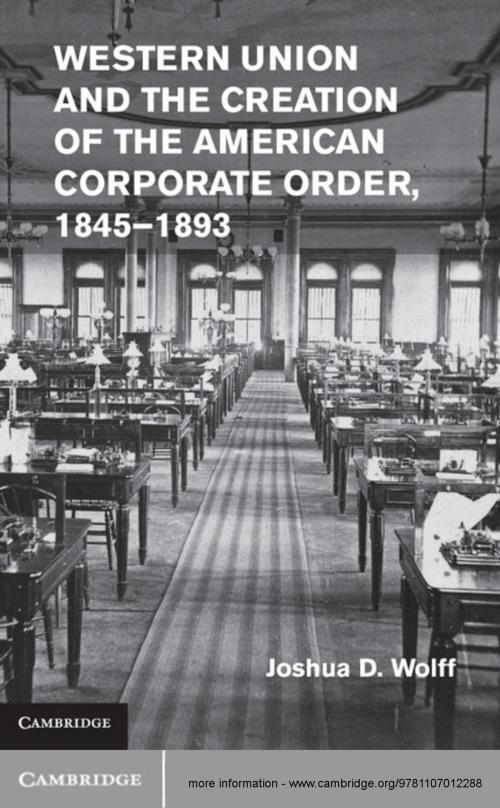Western Union and the Creation of the American Corporate Order, 1845–1893
Nonfiction, History, Americas, United States, 19th Century| Author: | Dr Joshua D. Wolff | ISBN: | 9781107241206 |
| Publisher: | Cambridge University Press | Publication: | June 28, 2013 |
| Imprint: | Cambridge University Press | Language: | English |
| Author: | Dr Joshua D. Wolff |
| ISBN: | 9781107241206 |
| Publisher: | Cambridge University Press |
| Publication: | June 28, 2013 |
| Imprint: | Cambridge University Press |
| Language: | English |
This work chronicles the rise of Western Union Telegraph from its origins in the helter-skelter ferment of antebellum capitalism to its apogee as the first corporation to monopolize an industry on a national scale. The battles that raged over Western Union's monopoly on nineteenth-century American telecommunications - in Congress, in courts, and in the press - illuminate the fierce tensions over the rising power of corporations after the Civil War and the reshaping of American political economy. The telegraph debate reveals that what we understand as the normative relationship between private capital and public interest is the product of a historical process that was neither inevitable nor uncontested. Western Union's monopoly was not the result of market logic or a managerial revolution, but the conscious creation of entrepreneurs protecting their investments. In the process, these entrepreneurs elevated economic liberalism above traditional republican principles of public interest and helped create a new corporate order.
This work chronicles the rise of Western Union Telegraph from its origins in the helter-skelter ferment of antebellum capitalism to its apogee as the first corporation to monopolize an industry on a national scale. The battles that raged over Western Union's monopoly on nineteenth-century American telecommunications - in Congress, in courts, and in the press - illuminate the fierce tensions over the rising power of corporations after the Civil War and the reshaping of American political economy. The telegraph debate reveals that what we understand as the normative relationship between private capital and public interest is the product of a historical process that was neither inevitable nor uncontested. Western Union's monopoly was not the result of market logic or a managerial revolution, but the conscious creation of entrepreneurs protecting their investments. In the process, these entrepreneurs elevated economic liberalism above traditional republican principles of public interest and helped create a new corporate order.















